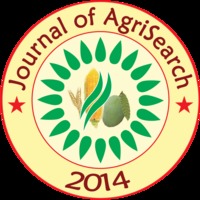
Carly Schuster
Phone: 61-2-61257043
Address: School of Archaeology and Anthropology, CASS
AD Hope Building, G35
The Australian National University
Canberra, ACT 0200
Australia
Address: School of Archaeology and Anthropology, CASS
AD Hope Building, G35
The Australian National University
Canberra, ACT 0200
Australia
less
Related Authors
Md. Matiul Islam
Khulna University
Serge Svizzero
Université de la Réunion
Chris Stevens
University College London
Marie Aureille
EHESS-Ecole des hautes études en sciences sociales
DISNA RATNASEKERA
University of Ruhuna
InterestsView All (8)








Uploads
Papers by Carly Schuster
cess through which wage labor is transformed into financial assets and new forms of accumulation. I begin with the observation that many Paraguayan families work in order to channel money into debt-based investments. This invites a conceptual shift: can we extend the wage relationships outward from a language of exploitation and into a language of indebtedness as well? I track the effort invested in “keeping on payment,” investments in the infamous free trade zone on Paraguay’s triple frontier with Argentina and Brazil, how money moves into economies of debt, and processes whereby the wage is restructured as an investment. I argue that while both the poor and elites of Paraguay see promise in Ciudad del Este’s de-regulated market, it is the low income and precarious labor of the working poor that bears the risks without accumulating the wealth of these transfers. [Keywords: Labor, financialization, credit/ debt, kinship, gender, family businesses, Latin America]
cess through which wage labor is transformed into financial assets and new forms of accumulation. I begin with the observation that many Paraguayan families work in order to channel money into debt-based investments. This invites a conceptual shift: can we extend the wage relationships outward from a language of exploitation and into a language of indebtedness as well? I track the effort invested in “keeping on payment,” investments in the infamous free trade zone on Paraguay’s triple frontier with Argentina and Brazil, how money moves into economies of debt, and processes whereby the wage is restructured as an investment. I argue that while both the poor and elites of Paraguay see promise in Ciudad del Este’s de-regulated market, it is the low income and precarious labor of the working poor that bears the risks without accumulating the wealth of these transfers. [Keywords: Labor, financialization, credit/ debt, kinship, gender, family businesses, Latin America]
Following the sample syllabus, this supplemental post also features an interview with Schuster, where she discusses the numerous ways that farming and insurance are entangled with “benevolent development” in the Global South, financial speculation in agricultural settings, the commodification of food, and the intersecting temporalities of finance and agriculture.